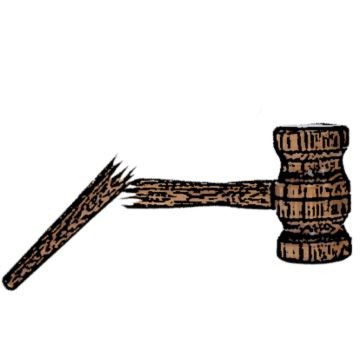The Lawyer's Lawyer
So you committed malpractice ...
Q. I'm not inclined to make excuses. But things have been so hectic in my office that I let a nice accident case slip through the cracks and failed to file suit by the limitations deadline. My head is spinning. What should I do now?
A. When you make mistakes like this, you must rely on two policies: Your malpractice insurance ... and honesty.
Get out your insurance policy and report the claim to your carrier right away. If you were smart enough to procure this coverage, this is what you've paid premiums for all these years. As important as the coverage itself may be, you now have an experienced malpractice claims professional on your side who can call upon the resources of attorneys with experience in this very situation.
Of course, honesty is the best policy. In this case, it will not prevent you from getting hit with a malpractice action. But full and honest disclosure to your client is the first step in putting this behind you and avoiding a claim for professional misconduct.
Once you have ascertained the salient facts, you must contact your client promptly to explain the situation, to take full responsibility for the error, and to advise the client of his or her need for independent counsel.
Whether you meet personally with the client, or speak over the telephone, you must confirm the substance of your conversation in writing. This will not only provide a helpful summary for your client, but it will also memorialize your honest and forthright disclosure of the circumstances surrounding the error. Given the sensitivity of this letter, you would be well advised to consult with counsel of your own before transmitting it to your client.
In all of your communications with the client, there are some important Do's and Don'ts to follow:
DO:
1. Inform the client of your error and of the consequences resulting from your failure to file suit in a timely manner;
2. Advise your client to consult with independent counsel to determine whether to assert a legal malpractice claim against you;
3. Assure your client that you will cooperate fully in any investigation which may ensue.
DON'T:
1. Make excuses - don't say anything to engender your client's sympathy or dissuade the client from pursuing a claim;
2. Express an opinion on the outcome of a claim, or cast doubt on its viability;
3. Attempt to resolve the claim yourself - even if you seek a fair outcome, DIY negotiations may cause trouble that you cannot buy your way out of.
Under the Rules of Professional Conduct, an attorney shall not settle a malpractice claim with an unrepresented client or former client unless that person is advised in writing of the desirability of seeking independent legal advice and is given a reasonable opportunity to do so. While you cannot force the client to retain other counsel, you should designate counsel of your own to field these delicate communications. If you try to negotiate a resolution yourself, you are open to claims that you misled the client or betrayed the client's trust – claims that may place your license to practice law in jeopardy.
Right now, you have a potential malpractice claim on your hands. If you compound your mistake by failing to handle it with care, your isolated error may trigger misconduct charges that could cost you even more.
